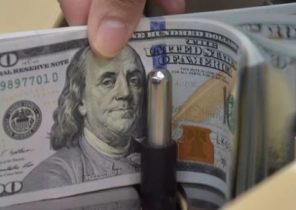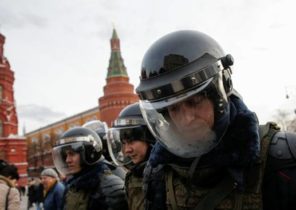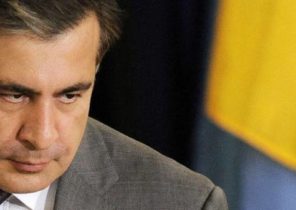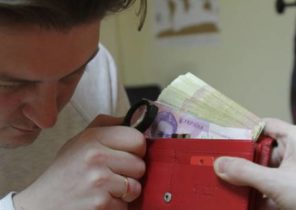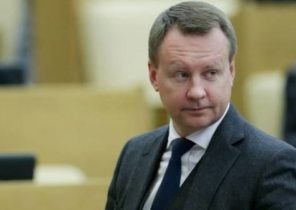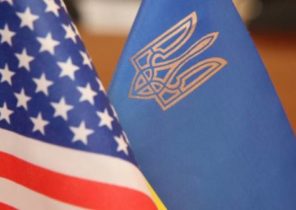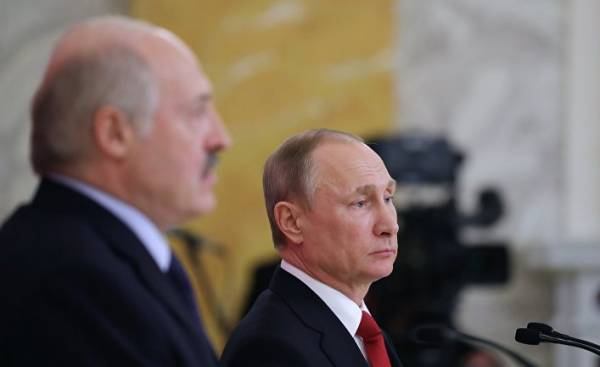
Friendship is friendship, and money separately — so says the proverb. But politics, as we know, follows its regulations except in official speeches. For example, technically, of all the former Soviet republics Russia and Belarus have very close ties. They even form the so-called Union state, which is 2 April marks exactly 20 years. It seems that it will not merge into a single country.
Everything seems to be for this features: common Slavic roots, shared language, history and mentality. But there it was: still the economic interests and ambitions of the leaders to harmonize. These days the undisputed leader of Belarus Alexander Lukashenko said that Russia is not ready to build a full-fledged Union state. Why would it? According to him, Moscow is trying to slow down the process of integration and the Treaty on economic and political partnership is on the verge of collapse. And that’s exactly after Lukashenko held a very productive, in recognition of international observers, a meeting with his Russian counterpart Vladimir Putin, achieving significant discounts on Russian gas.
Debt payment is red. But not only…
Until the beginning of April the energy conflict between the two neighbouring countries was on the rise, seriously threatening to turn allies into enemies. It began in the first quarter of 2016 began as a dispute over a single gas market within the Eurasian economic Union (EEU). Initially, the cooperation between the EEU assumed that the price of gas in the countries-members of the Union will be United. But Minsk is perceived differently, considering that Gazprom has to deliver gas to Belarus at Russian domestic prices.
Moscow this view is not shared, with the result that Minsk has unilaterally revised the current contract, starting pay at the rate of 73 dollars per 1 thousand cubic meters, not 132 dollars, as stipulated in the agreement.
Accordingly, from the Russian point of view by the end of March 2017 debt of Belarus underpayment for Russian gas had exceeded $ 700 million. While Belarus itself “does not consider these funds as debt,” as reported in late March, the press service of Prime Minister of Belarus Andrei Kobyakov.
Meanwhile, mutual economic claims grew like a snowball. Although the Belarusian side in the last year has said several times that the conflict is resolved and even promised to pay the debt until the end of October (at the time it was about $ 300 million). As payments have not begun, Moscow has limited delivery to Minsk of oil, which the Belarusians were received at a price significantly below market, since the supply was not applied the export duty.
In addition, Russia has sharply restricted, and in some positions and does put a barrier in the way of exports of Belarusian foodstuffs. For its part, the Belarusian President did not appear at the pre-Christmas summit of the leaders of the EEU and the CSTO, and refused to sign several important documents. And had no doubt about the reasons of discontent of Minsk in early February, commenting on the oil and gas conflict with Moscow, Lukashenko said that Russia is trying to “take the country by the throat”. But Belarus will not succumb to blackmail, brought to the attention of Moscow the Belarusian President.
Several rounds of negotiations, including at the level of Prime Ministers of the two States Kobyakov and Medvedev, has not led to any results. The parties have accused each other in the absence of a constructive position.
It became clear that unblock a conflict can only the leaders of the two countries. And they really succeeded after long and difficult negotiations, held in St. Petersburg. According to their results, the two leaders in unison said, “today we have no contentious issues.” So if they managed to overcome the main barrier to eternal friendship? After all, the Alliance between Moscow and Minsk costs the Kremlin tens of billions of dollars.
You pay the bills
Many observers believe that although the parties assert certain mutual concessions, is actually very similar to what the Belarusian President made by his Russian counterpart almost everything he wanted. First of all, Russia has agreed to refinance the gas debt of Belarus in the amount of 750-780 million. In addition, by January 1 of the next year it is planned to develop joint rules to create a common market of gas, and by 2024 — to sign the corresponding intergovernmental agreement.
And yet, Moscow has pledged to promptly return the Belarusian agricultural products (primarily beef and beef offal banned in the beginning of the year) to its market, to restore oil supplies to the Federal Republic in the amount of 24 million tons per year, and to introduce a reduction factor to the “gas formula”, which will apply from 2018 to late 2019.
In other words, the old Man got everything he wanted: a comfortable for the budget price of gas, the delay in the payment of already accumulated debt, and the amount of oil supply, four times the own needs of Belarus. Recall that from above 24 million tons for domestic needs is not more than 5-6 million tons, all the rest is processed in the local factories and sold for dollars abroad.
What mutual concessions in response to go to Minsk, remained unclear. Experts believe that, most likely, they are not in economic but in the political sphere. For example, it was announced that a meeting of the Supreme state Council of Russia — Belarus, which is due to the failure of Minsk could not organize more than two months, will be held in the near future. It is also possible that at the meeting of Putin and Lukashenko discussed the conditions of placing on the territory of Belarus of a Russian military base, but while some arrangements on this score is not reported.
Ally cost-100 billion
The question arises whether, in principle, Russia is an ally, for the friendship with which you have to pay. Here a sceptical reader may object: but who else comes? So it is true, but only the formation of a unified gas market may in the end be the only reason for the reform of the internal market of Russia — the worst in consumer direction. As a result of liberalization domestic prices on “blue fuel”, that is, the convergence of their export. And in this case prices will get to Lukashenka and Russian consumers.
And indeed, the support of neighbors in the Union state in Moscow it costs quite a tidy sum. The international monetary Fund in September 2016 estimated General support to Belarusian economy from Russia in 106 million dollars for the period 2005-2015, or about $ 9.7 billion per year. In different years the amount of “total net of support” from Russia ranged from 11 to 27% of the Belarusian GDP, from IMF data.
Moreover, the model of relations between the two allies has long been described by the formula: financial and economic support of Russia is exchanged for a certain degree of political loyalty on the part of Belarus. The Belarusian economy has long been based on relatively cheap due to the “special relationship” Russian fuel.
But lately, Belarus is increasingly showing signs of “political disloyalty”.
For example, publicly supported the Ukrainian policy of Moscow or the Russian counter-sanctions. Hence, there are conflict of conflict. Similar to those that had to be resolved in early April, presidents Putin and Lukashenko.
Well, the latest word about the fact that Russia is not ready for full-fledged Union state, must not be misleading. Belarusian Dad isn’t going to bring this integration to a level which threatened the loss of the presidency. That could happen, become two countries is really a single state.
Presumably, the leaders of Russia have long been accustomed to such public manifestations of Lukashenko. In Moscow perfectly understand what goals the Belarusian leader, building thus the relationship with Russia. However, the problem of the Kremlin that Russia there are not so many allies on the world stage. Therefore, the Russian authorities, it would seem, given all the economic trump card in the game against Belarus, forced to play largely imposed by Alyaksandr Lukashenka rules. Just to keep Minsk as the political and economic adherents, as to throw the allies, though so contradictory, the Kremlin in the current difficult times with hands.

